The curves speak a clear language. According to John Hopkins University in the USA, which registers all officially reported coronavirus cases worldwide, the pandemic has not yet peaked in Nepal. Since the beginning of May, the curve has been rising continuously – around 5,000 infections have been registered so far, 16 COVID-19 deaths. The number of unreported cases is likely to be very high given the comparatively low number of coronavirus tests in the country. Yesterday, the police in Kathmandu used water cannons to stop a rally of about 1,000 people in front of the house of Prime Minister Khadga Prasad Oli. Among other things, the demonstrators had demanded more corona tests than before. The strict lockdown in Nepal has been in effect since 24 March and will remain in force for the time being until this Sunday. Oli has announced a slight easing of the restrictions.
Successful mountaineering official and entrepreneur
The standstill in public life has hit the mountain tourism industry of the Himalayan state hard. I have asked Ang Tshering Sherpa about this. The 66-year-old was the head of the Nepal Mountaineering Association (NMA) for many years and is an honorary member of the UIAA, the World Mountaineering and Climbing Federation. Ang Tshering comes from the village of Khumjung in the Khumbu region and was one of the first students at the Edmund Hillary School, financed and built by the Himalayan Trust, the aid organization of the New Zealander who made the first ascent of Mount Everest along with the Sherpa Tenzing Norgay. In 1982 Ang Tshering Sherpa founded Asian Trekking, one of the leading providers of expeditions and trekking tours in Nepal. Now his son Dawa Steven Sherpa is the company’s CEO.
Ang Tshering, do you understand people who have put their plans for a trip to Nepal on hold out of concern about the corona pandemic?
Yes, I know many people who have put their travels on hold out of concern about the corona pandemic, as we had many trekking and expedition members who had to cancel their trip to Nepal due to the travel restrictions imposed by our government and flight cancellations by the airlines to control the spread of the virus. Many climbers have postponed their plans to next year but as the pandemic situation continues and impacts their economic circumstances, I fear that many travelers may no longer have the budget to go on expeditions in the near future.
Nepal has been under a strict corona lockdown. How are the people in the mountain regions who live from tourism?
It’s been more than two months since we are under strict lockdown. The people in the mountain region who live from tourism are having a hard time, especially the porters who have a hand-to-mouth life and depend on daily wages. Of course, the trekking guides and Climbing Sherpas are also impacted but they generally have some savings to rely on in hard times. The income from the spring season helps all of them sustain their livelihood for the rest of the year. As we look to the future, we are afraid that even the autumn tourist season may be seriously impacted. Even the Sherpas and local people who rely on tourism will not be able to survive this much disruption. The mountain community is hardest hit in any national or international crisis, because the cost of living is so high there due to logistical reasons and the local climate which is difficult for agricultural sustenance and everything has to be carried up.
In Kathmandu there are hundreds of hotels as well as expedition and trekking agencies. Many of them live from hand to mouth. Have some of them already had to throw in the towel?
The service industry like tourism and hotels are most hard hit by the effect of corona. Many hotels have decided to remain shut for six months and send their staff home because they can’t keep paying their salaries without any revenue coming into the country due to the lockdown. They do not expect tourists to visit Nepal until 2021 at the earliest. Among more than 2600 travel agencies, 2000 trekking agencies, rafting agencies, expedition operators, hotels, lodges, restaurants most of them have had to close their operation due to the effect of the corona crisis following by the lockdown, resulting in the loss of many jobs of the people directly and indirectly related to the travel, hotel, trekking and mountaineering fields. As we are still in a lockdown, it is too early to make a damage assessment on the industry. The number of bankruptcies and permanent closures of business will only be transparent after the lockdown is lifted.
At the beginning of the crisis it was often heard from Nepal that one could somehow survive a season without tourists and that then the foreign visitors would have to come in October or November. Do people still have high hopes for the fall season?
With the falling economy and job loss around the world due to corona and also due to rise in corona cases in Nepal, I doubt that Nepal will have a good fall season; nevertheless, we are keeping a positive outlook.
The government of Nepal has repeatedly stated that it is discussing aid programmes for the industries that have been particularly hard hit by the corona pandemic. Is there already any concrete programme for the battered mountain tourism sector?
In the recent announced budget, the government plans to promote domestic tourism but has not announced any specific aid programmes for the tourism sector. To be honest, I do not believe the government has the resources to do very much even if they have the intention. For this reason, we in the private sector and non-government sector are preparing to do the necessary to recover from the economic impacts, and if the government is able to support then that would be a great bonus.
Everest record holder Kami Rita Sherpa proposed in March to use the break on Mount Everest to clean up the mountain. This would have given jobs to guides and porters in the Khumbu region. Why did it not come to this?
The idea to clean Everest during the lockdown was indeed proposed to the Nepal government, but both the Government and Nepal Mountaineering Association declined the idea stating that it was not possible during the lockdown. I believe the government needed to lockdown the mountains as well to give solidarity to the lockdown regulations. Treating one sector with exception would have invited protests and criticism from all other sectors of society, especially if corona virus spread amongst the Sherpas. The government did not want to risk inviting such a situation.
How long do you think mountain tourism in Nepal will take to recover from the corona crisis?
Many countries in the world are going through hard economic times with some countries already going into recession due to the effect of the coronavirus lockdown. Nepal’s tourism industry depends on the good economic health of the international community. As such, as long as the global economy is in a downturn, it will not be realistic for us to expect tourism numbers to return to pre-corona days.
Nevertheless, Nepal has learnt valuable lessons from the 2015 earthquake. We learnt that working hard, cooperating between all economic sectors and not losing hope can bring about recovery much faster. We have the advantage of surviving an economic crash after the earthquake, so we know that though circumstances look bad now, better days will come.
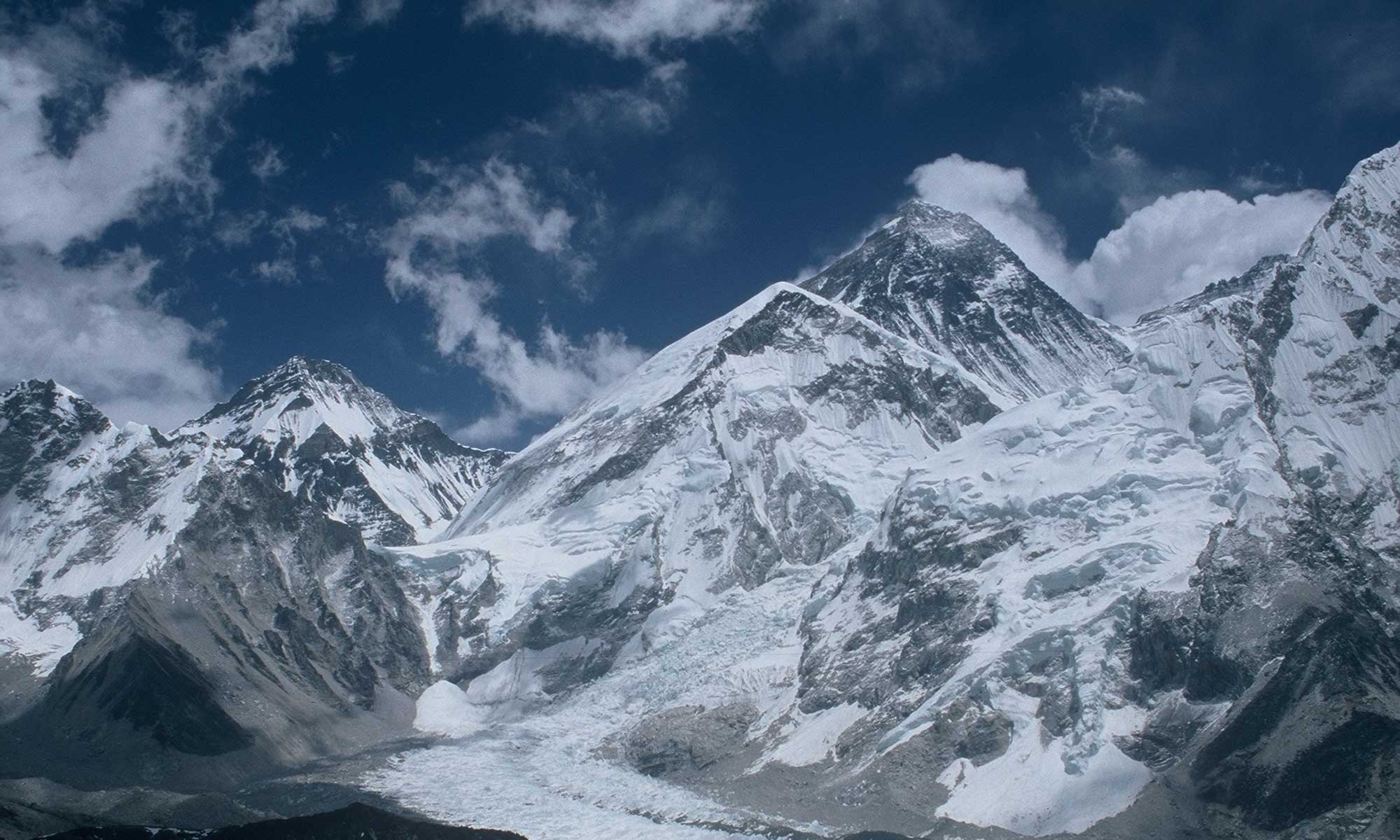
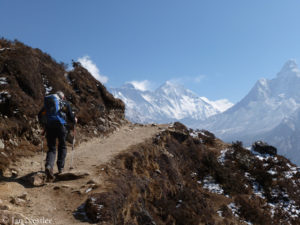
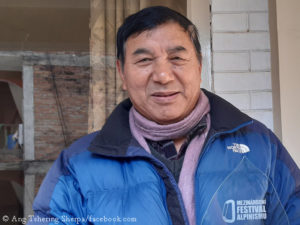
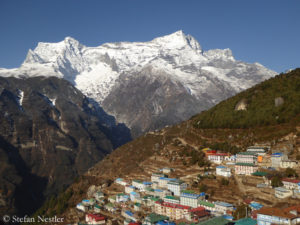


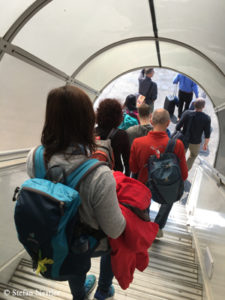
I fully agreed that the CORONA VIRUS PADEMIC has hard hit to Tourism sector and takes long time to recover. I have not seen any government’s visible action to support the sectors
Very informative interview to promote Nepal mountain tourism.
I learn this interview.I feel that it is the very informative dialouge with foreign reporter with our honorable person Ang xiring dai .It help to promote Nepal’s mountaineering tourism .